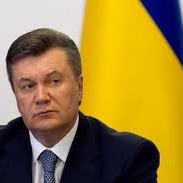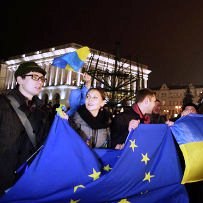(Eurasia Daily Monitor) The Ukrainian government’s shocking decision to put on hold the process of finalizing the Association Agreement with the European Union, announced last Thursday (November 21), a week prior the momentous Eastern Partnership summit in Vilnius, could be interpreted as Russia’s success in sabotaging Kyiv’s “European choice” (see EDM, November 22). President Vladimir Putin expressed his resolute disapproval of the long-prepared EU-Ukraine agreement two months ago at the pompous meeting of the Valdai Club. And he now prepares to savor the triumph of his ill will, while accusing the EU of attempting to “blackmail” Ukraine to cancel the cancellation (http://ria.ru/world/20131122/
It is the economy that is commonly assumed to be the central subject in tri-lateral controversies, and indeed, Russia’s not-so-gentle squeeze on Ukraine’s exports has seriously aggravated the latter’s economic troubles. Kyiv cannot realistically expect that an agreement with the EU would compensate for the sanctions that Moscow has threatened to apply, but neither can it cope with the demands from the International Monetary Fund to eliminate subsidies and cut the budget deficit (http://polit.ru/article/2013/
See the full article | © Eurasia Daily Monitor (10 Issue: 212)











